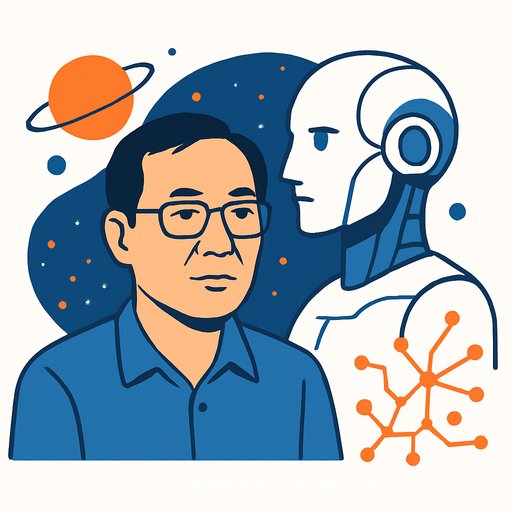The craft and politics of academic writing in the AI universe
AI split the room. Some cheer. Some resist. Most feel stuck between convenience and a slow erosion of voice, agency and care.
For writers, scare tactics don't work. What does work: doubling down on the craft, creating human spaces for thinking and writing, and engaging with the politics behind the tools.
Why scare tactics fall flat
Writers don't need lectures about "cheating." They need clarity on what's at stake: their voice, their thinking, their standards.
In workshops, one student called over-reliance on AI "sluggish." That word matters. It hints at a deeper cost: outsourced attention and a numbed writing muscle.
Build Human Intelligence spaces
Create rooms where writers talk through process, not just product. Keep the focus on how thinking becomes text.
- Deconstruct drafts: where did the argument bend, where did it snap back?
- Talk openly about fear, blank-page panic and the relief of finding the precise phrase.
- Treat writing as social practice: writer, audience, context. Not a button to push.
- Surface what's lost when we outsource too much of the thinking and forming.
Co-create AI use guidelines that protect voice and agency
- Disclosure: state if, where and how AI was used. Paste prompts and outputs in an appendix when applicable.
- Boundaries: allow idea generation, outlining and rephrasing constraints; ban uncredited ghostwriting.
- Attribution: cite sources you discover through AI. Fact-check everything.
- Privacy and ethics: avoid pasting proprietary or student/client data into public tools.
- No default detectors: don't feed drafts into AI detectors; they're unreliable and can harm trust.
- Assessment design: value process. Require notes, drafts and revision logs to reward thinking, not just polish.
- Reciprocity: if writers must submit original work, reviewers/lecturers commit to personal, useful feedback.
The politics you can't ignore
These tools aren't neutral. They sit on resources, data, and ownership structures that affect our craft.
- Sustainability: training and inference consume energy and water. See research on AI's environmental costs ("AI's water footprint").
- Intellectual debt: models are built on scraped text and images. Read critiques of data, bias and scale ("Stochastic Parrots").
- Concentrated power: a handful of firms control the stack while benefiting from public funding and academic labor.
- Quality slop: mass-produced text floods channels, burying careful work and muddying signals of rigor.
A craft-first manifesto for writers
- Process over product: draft, reflect, revise. Show your work.
- Voice before velocity: speed is useless if it erases identity.
- Thinking in public: annotate decisions, note doubts and track changes.
- Constraints are creative: set word caps, structure rules and style targets.
- Source honesty: if AI helped, say how. If sources informed you, cite them.
- AI as junior, not senior: it proposes; you dispose.
- Bias checks: interrogate claims, assumptions and missing perspectives.
- Energy awareness: minimize wasteful runs and redundant generations.
- Data dignity: protect client, student and community materials.
- Care as a metric: if you don't care, the reader won't either.
Practical workflows that keep you in control
- Pre-write sprints: 10-15 minutes freewriting to surface intent before any tool enters.
- Outline, then assist: set your structure first. Use AI to propose alternatives, not to decide.
- Voice calibration: feed a few of your past paragraphs and create a short style card (tone, cadence, sentence length). Stick to it.
- AI-free passes: do a full pass without AI to restore flow and judgment.
- Facts and quotes: verify every claim and citation. No exceptions.
- Reflection log: keep a short note on what AI improved, what it harmed and what you'll do differently next time.
On Luddites, craft and standards
E. P. Thompson reframed the Luddites as defenders of "standards of craftsmanship," not enemies of progress. That matters for writers.
Resistance isn't about refusing tools. It's about refusing mediocrity. We defend standards so the work means something.
If we "lose" on automation, we still win by protecting integrity and building a culture that values rigor over volume. That culture is contagious.
If you want to build informed use, not dependency
- Study how large models bias language and ideas, then set guardrails.
- Use curated resources to compare tools and pick minimal, purposeful stacks (one for ideation, one for proofreading). For a practical overview of AI options for copywriting, see this curated list: AI tools for copywriting.
Further reading
- E. P. Thompson, The Making of the English Working Class: summary and context (overview)
- Environmental and ethical critiques of large models (Stochastic Parrots; AI's water footprint)
The point isn't to ban or glorify AI. It's to write with standards, think with care and make choices that keep you - not the tool - as the author of the work.
Your membership also unlocks:






